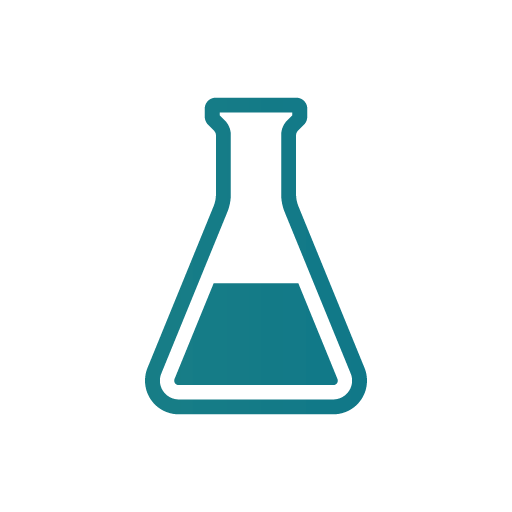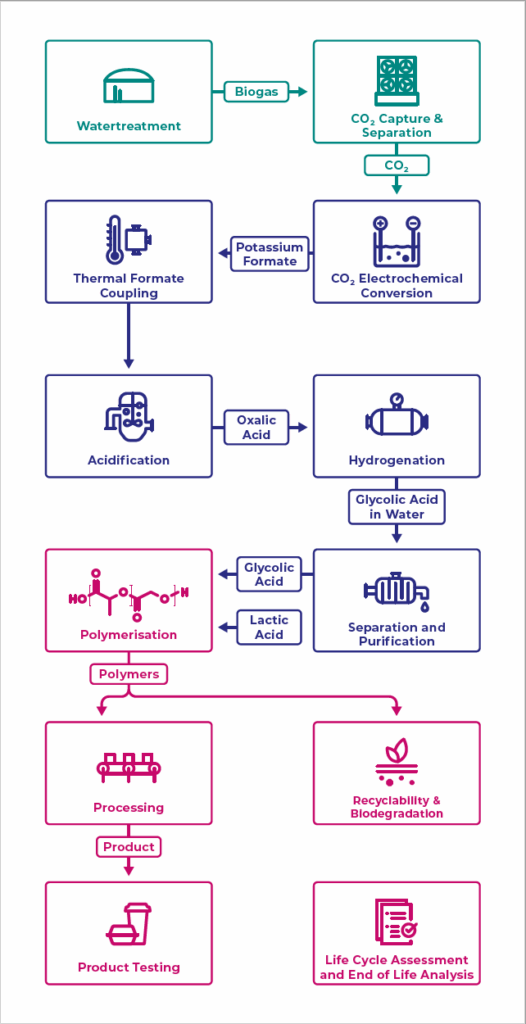



HICCUPS – Highly Innovative technology demonstration for bio-based CO2 Capture and Utilization for production of bulk plastics applications
The HICCUPS project proposes a resource-efficient solution to convert biogenic CO2 emissions from wastewater treatment plants into bio-based polymers for the packaging industry. The aim of the project is to develop an efficient process to electrochemically convert CO2 emissions from water treatment sludge into monomers and polymerise them to produce the bio-based polymer, polylactic-co-glycolic acid (PLGA), for the food packaging industry.
PLGA is a polymer with excellent water and gas barrier properties that is fully biodegradable and can be entirely produced from renewable resources, making it a promising candidate to replace fossil-based polyethylene. To demonstrate the potential of PLGA, packaging materials will be produced using PLGA film coated paper and moulded plastic, including coated paper for food packaging.

Type of Action
Horizon Research & Innovation Action

Budget

Partners

Countries

Term
September 2023 –
August 2027

Goals of the project
The HICCUPS project aims at maximising scientific, economic and societal impact and support the goals of the HORIZON Europe Action Plan. These impacts include:
- To demonstrate the entire value chain from biogenic CO2 captured to the final application of PLGA (Poly(lactic-co-glycolic acid)).
- To develop an efficient process for the conversion of carbon dioxide emissions from water treatment sludge into PLGA.
- A key step in the HICCUPS project involves building a CO2 capture and purification demonstration plant at a wastewater treatment plant.
- The aim is to scale up the laboratory technology to a demonstration/pilot scale of about 100 kg/220 pounds of PLGA.
- Final products, including PLGA-coated paper for food packaging and moulded plastics, will be produced for the consumer market.
- Testing of the recyclability and (marine) biodegradability of the PLGA materials.
- Life Cycle Assessment and End of Life Analysis.
